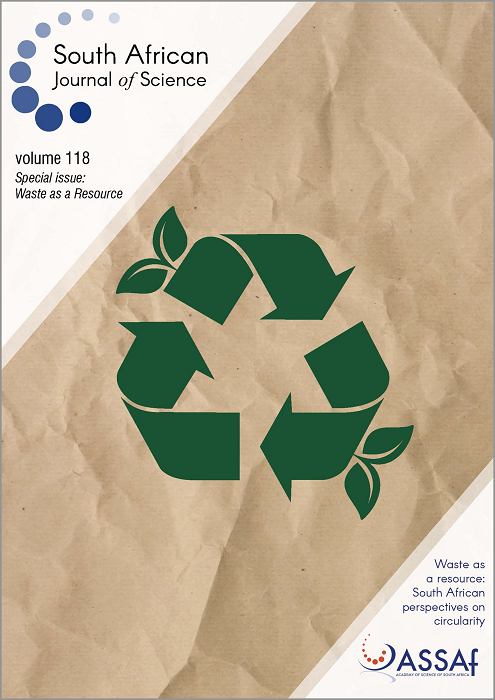The myth of livelihoods through urban mining: The case of e-waste pickers in Cape Town
DOI:
https://doi.org/10.17159/sajs.2022/12456Keywords:
informal sector, e-waste, sustainable livelihoods, informal jobs, recyclingAbstract
Waste pickers are widely acknowledged as an integral part of the formal and informal economy, diverting waste into the secondary resource economy through urban mining. Urban mining in itself is considered to be a source of livelihoods. We investigated the livelihoods of e-waste pickers through 110 surveys in Cape Town, South Africa. Waste pickers often indicated that they were engaged in the sector not by choice but by necessity, expressing that earning money is the only enjoyable aspect of their job. The results from the study substantiate that it is unlikely that waste pickers could survive on e-waste picking alone as 83.3% of reported incomes were below minimum wage, with 22.9% below the food poverty line. Thus, the majority of waste pickers collected a wide array of recyclables. We also found that the waste pickers in Cape Town engage in multiple e-waste related activities, including collection, dismantling and processing to a lesser extent. They work long hours in arduous working conditions which present multiple hazards for their health and safety. Ultimately, e-waste pickers’ incomes cannot be considered commensurate with the nature of the work. Further, e-waste picking cannot be regarded to significantly contribute to livelihoods, but is rather a survivalist strategy. The survivalist nature of the work does not allow for waste pickers to move upwards in the waste value chain and benefit from greater income opportunities. Furthermore, their lack of skills prohibits waste pickers’ transition to formal employment. With a lack of options, it is necessary to ensure that the waste sector provides opportunities for decent work to enable workers to lift themselves out of poverty.
Significance:
- E-waste pickers participate in multiple activities across the e-waste value chain including collection, dismantling, processing, and repair and refurbishment.
- E-waste pickers in Cape Town cannot make a living on e-waste alone, and supplement their income from collecting other recyclables.
- E-waste pickers work long hours in difficult working conditions which pose a threat to their health and safety.
- E-waste picking is a survivalist strategy.
Published
Issue
Section
License

All articles are published under a Creative Commons Attribution 4.0 International Licence
Copyright is retained by the authors. Readers are welcome to reproduce, share and adapt the content without permission provided the source is attributed.
Disclaimer: The publisher and editors accept no responsibility for statements made by the authors
How to Cite
- Abstract 969
- PDF 899
- EPUB 270
- XML 331
Funding data
-
National Research Foundation
Grant numbers 128149












.png)